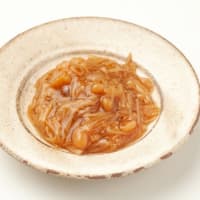Dali Hey Ina-chan! What do you think of gaijins? Do you like gaijins?
ダリちゃん おい、イナちゃん! 外国人のことどう思う? 外国人は好き?
Me It depends on what the gaijin is like. If she is beautiful, coquettish, sexy, and cheerful, I like this gaijin.
私 どんな外国人かによるけど。綺麗で艶めかしくてセクシーで朗らかなら、僕は好きだよ。
Dali Me too. Heh, heh, heh…
ダリちゃん わしも。へ、へ、へ……
Me On the other hand, if he looks dirty, carrying a backpack, and is stinky, I would rather stay away from this gaijin.
私 でもね、汚らしくて、リュックサックを背負って体臭のきつい外国人には出来れば近づきたくないね。
Dali Yes. But, generally speaking, I think Japanese people are very friendly towards gaijins. Even towards such stinky geeky gaijins, Japanese people are so kind. Well, in my experience, most Japanese are very friendly, and try to say something friendly to please the gaijin.
ダリちゃん そうだね。でも一般的に言って、日本人は外国人に対してすごく親切だと思うよ。そんな臭い、おたく系の外国人に対しても、日本人はとても親切。まあ、わしの経験上、多くの日本人はとても親切で、外国人を喜ばせようと、なにか友好的なことを言おうとするね。
Me That’s a good thing.
私 いいことだね。
Dali That’s a good thing, indeed. But sometimes a comment intended as a kindness is actually insulting to gaijins. I’ll give you some examples. I think it might be very informative for Japanese people to know the reasons why it is insulting, to avoid saying such things in the future.
ダリちゃん 確かにいいことだ。でも親切で言ったことが往々にして、実際には外国人に失礼になることがある。いくつか例を挙げるね。日本人が、将来そんなことを言わないように、なぜ無礼に当たるのか理由を知ることはとても勉強になると思うよ。
Me Oh, tell me! Tell me!
私 ふ~ん。教えて、教えて!
Dali The most common one that is said so many times everyday in Japan to gaijins, and that the gaijins almost always hate, is “Ohashi-ga-jouzu-desu-ne.” Why do the Japanese say this?
ダリちゃん 日本で外国人が毎日のように何度も何度も言われている最もよくある例で、外国人がほとんどいつも嫌っている言葉に「お箸が上手ですね」がある。なぜ日本人はそんなことを言うのかなあ?
Me Funny!
私 おもしろ~い!
Dali Why don’t you say it to a Japanese high school boy?
ダリちゃん なぜ同じことを日本の高校生男子にいわないんだ?
Me Because the high school boy may get angry to hear that.
私 だってそんなこと言うと高校生の男の子、怒るよ。
Dali Here, let me get to the basic reason why this is insulting. The Japanese are praising adult gaijins for something that even a child can do. You’ll see many gaijins become so annoyed by being told this by the Japanese. Imagine being told by a gaijin, “You are very good at using a spoon.”
ダリちゃん でね、なぜ無礼なのか基本的な理由を言うよ。日本人は、子供でもできることに対して、大人の外国人を褒めているんだ。日本人にそんなことを言われて憤慨している外国人をよく見るだろう? 外国人に「あなたはスプーンの使い方が上手ですね」と言われることを想像してみて。
Me Oh, thank you.
私 ああ、それはどうもありがとう。
Dali You can see many times in American movies, a character goes to a Chinese or Japanese restaurant and uses chopsticks. It’s so common.
ダリちゃん アメリカ映画で登場人物が中華や日本レストランに行ってお箸を使うシーンををよく見るだろう? ほんとよくあるシーンだね。
Me Yes, it is.
私 うん。
Dali But when the Japanese see a gaijin badly using chopsticks, they think that he looks so stupid and pathetic. The Japanese therefore take pity and endeavor to praise his poor efforts.
ダリちゃん でも、外国人がひどいお箸の使い方をしているのを見ると、日本人には外国人が滑稽で哀れに見えるんだろうね。だから日本人は不憫に思って無駄な努力をたたえようと努力するんだ。
Me Dali, you are very good at using chopsticks!
私 ダリちゃん。お箸上手!
Dali Shut up! And here is the worst part. The clumsier the gaijin is, the more lavish the Japanese praises him. The gaijin knows this. This is extremely patronizing. It infuriates him.
ダリちゃん お黙り! 最悪なことに、外国人が不器用であればあるほど、日本人はさらに大げさに褒めるんだよね。外国人はそのことを知っている。とてもバカにしている。激怒するよ。
Me You are overthinking. I think the Japanese don’t intend to patronize the gaijin.
私 ダリちゃん、考えすぎ。日本人は外国人をバカにしてるつもりはないと思うよ。
Dali Of course they don’t. Their intention is nothing more than to express kindness. NEVERTHELESS, the effect is to infuriate the gaijin. Another example similar to this is “Nihongo-ga-jouzu-desu-ne.” And again this is something every gaijin is annoyed with. The important point here is that the worse his Japanese is, the more he is praised. So, if your Japanese is extremely good, nobody will say anything about your Japanese. But if your Japanese is terrible, like, “Arigatou very kusai-masita…,” you are overcomplimented for your Japanese.
ダリちゃん もちろんそんなつもりはないと思う。日本人は親切心でしているにすぎない。でもね、外国人を激怒させる結果になるんだ。これによく似たもう一つの例として「日本語が上手ですね」がある。で、これも外国人がムカつく言葉なんだ。ここで重要な点は、日本語が下手であればあるほど、より褒められるということだ。だからもし外国人の日本語が究極に上手なら、誰も彼の日本語について言及しないだろう。でも、日本語が酷くて、例えば「アリガトウ・ベリー・クサイマシタ……」とか言うとすると、えげつないほど日本語を褒められる。

Me Dali, your Japanese is so fluent!
私 ダリちゃん、日本語とても流暢!
Dali Ookini. If the gaijin receives a compliment on his Japanese, he feels his Japanese is bad because he knows that Japanese people never compliment good Japanese. They only compliment bad Japanese.
ダリちゃん おおきに。もし外国人が日本語を褒められたら、彼は自分の日本語が下手だと思う。だって、彼は、日本人は上手な日本語を決して褒めないことを知ってるから。日本人は下手な日本語しか褒めないことを。
Key words(キーワード)
patronize: 後援する、ひいきする、顧客となる、見下したようにあしらう、擁護する
coquettish: あだっぽい、男たらしの、艶めかしい
cheerful: 陽気な、快活な、元気のいい、朗らかな
backpack: バックパック、リュックサック
stinky: 臭い、嫌なにおいのする、悪臭のする
geeky: おかしな、奇人のような、おたく系の、気持ち悪い
please: 喜ばせる、満足させる
insulting: 侮辱的な、無礼な、失礼な
informative: 情報を与える、参考になる、勉強になる、有益な
praise: 褒める、称賛する、たたえる
annoyed by: にむかついて、ムッとして、いら立って
character: 登場人物、キャラクター、役柄
pathetic: 哀れな、痛ましい
take pity on: (~に)同情を示す、(~を)哀れむ、(~を)不憫に思う
endeavor: (~しようと)努力する
clumsy: 不器用な、ぎこちない
lavish: 物惜しみしない、気前のよい、ぜいたくな、豊富な、充分な
infuriate: 激怒させる
overthink: 深く考えすぎる
nothing more than: にすぎない、でしかない
be annoyed with: にむかついて、ムッとして、いら立って
compliment: 賛辞、褒め言葉、お世辞を言う、敬意を表す、褒める
opposite: 反対側の、正反対の、逆の
drag down: (を)引きずり降ろす、弱らせる、落ちぶれさせる、墜落させる
emotionally: 感情的に、情緒的に
Comments(コメント)
It’s interesting that common compliments for gaijins like, ‘you are very good at using chopsticks’ or ‘your Japanese is very good,’ may actually have the opposite effect, dragging them down emotionally.
よくある外国人に対する褒め言葉、例えば「お箸がとても上手ですね」や「日本語がとてもお上手」など言うことが実は逆効果で、彼らを感情的に落ち込ませる、ということは興味深いことである。



















